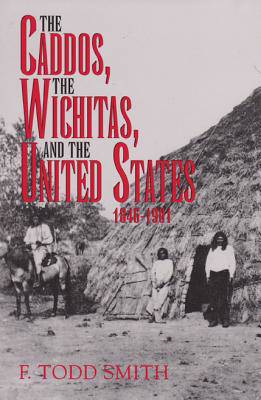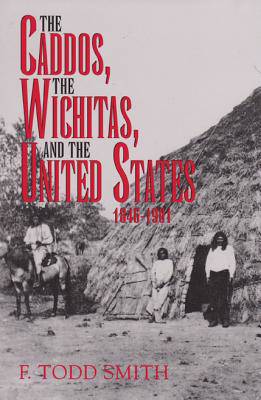
- Afhalen na 1 uur in een winkel met voorraad
- Gratis thuislevering in België vanaf € 30
- Ruim aanbod met 7 miljoen producten
- Afhalen na 1 uur in een winkel met voorraad
- Gratis thuislevering in België vanaf € 30
- Ruim aanbod met 7 miljoen producten
Zoeken
Omschrijving
Although the Wichita Indians, of Caddoan stock, had separated from the Caddos proper about 1500 B.C., the two peoples maintained close ties. In 1846, when the various Indian tribes of Texas signed a far-reaching treaty with the United States, the Wichitas and Caddos both also had a history of relations with the Euroamericans. Both tribes had become in many ways dependent on the Europeans--for firearms, clothing, tools, and cosmetic goods. This dependence, which had served them well during the years of European exploration and colonization, had by 1846 made them vulnerable to the demands of the young American nation for more and more land for settlement. Both tribes--the Wichitas voluntarily, the Caddos under duress--headed west.F. Todd Smith's new narrative picks up the story of these tribes begun in his volume The Caddo Indians: Tribes at the Convergence of Empires, 1542-1854. Their relations with the United States government, the state of Texas (whose role in Indian policy was distinctive because of its previous status as a sovereign nation), and officials of Indian Territory, as well as their ongoing struggles with other tribes similarly being forced from traditional lands, make compelling reading. Smith documents the process by which the Caddos and Wichitas increasingly lost control of their own fate and came to be governed by the whim of the federal government. Smith relates the political history of the two tribes, details life and agricultural work on the reservation, chronicles federal attempts to introduce an education system to the Indians, and traces the effect of hostile tribes and unscrupulous whites on the reservation experiment. Using primary documents, he traces the history of the Wichitas and Caddos through the Civil War, when they were forced to take refuge in Union-controlled Kansas, to the sharing of reservation land with their former enemies, the Kiowas and Comanches. He describes in details the efforts of the two tribes to adapt to white ways, developing a life within the confines of the reservation experience that borrowed from Euroamerican culture while retaining many of their own traditions. Finally, he shows how, even as the Wichitas and Caddos adapted to Euroamerican culture successfully, the federal government changed its policies again, this time attacking the very concept of tribalism and breaking up the reservation system.Throughout the book, Smith convincingly analyzes how the successful adaptation of the tribes to white demands itself undermined their power and future. In the end, Smith shows, the Caddos and Wichitas used the Euroamerican legal system to fight the last battle--unsuccessfully--losing the very basis of tribal life, shared land.
Specificaties
Betrokkenen
- Auteur(s):
- Uitgeverij:
Inhoud
- Aantal bladzijden:
- 198
- Taal:
- Engels
- Reeks:
- Reeksnummer:
- nr. 64
Eigenschappen
- Productcode (EAN):
- 9780890967089
- Verschijningsdatum:
- 1/11/1996
- Uitvoering:
- Hardcover
- Formaat:
- Genaaid
- Afmetingen:
- 159 mm x 234 mm
- Gewicht:
- 557 g

Alleen bij Standaard Boekhandel
+ 88 punten op je klantenkaart van Standaard Boekhandel
Beoordelingen
We publiceren alleen reviews die voldoen aan de voorwaarden voor reviews. Bekijk onze voorwaarden voor reviews.











